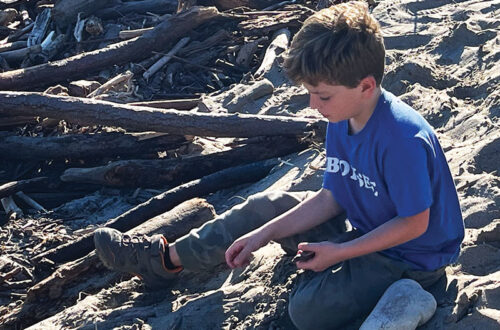Ask Nicole: 30 Ways to Praise
Written by Nicole M. Young, MSW

In my line of work, I often hear people describe two communication patterns they’ve noticed in the workplace: 1) they have a hard time saying positive things about themselves, and 2) they tend to hear more “constructive criticism” than genuine praise and positive feedback from their colleagues. The two patterns are usually related and exist for many complicated reasons. The combined effect of these patterns is often insecurity, fear of failure, misunderstandings, and conflict in the workplace.
It makes me wonder why it’s hard for some people to give and receive authentic praise. Hearing positive, encouraging words can be food for the soul, and it seems like we should be giving each other more praise versus less, starting with children. Giving intentional and appropriate praise is a vital part of raising confident, motivated, resilient children who grow up to be confident, capable, motivated adults who can think and talk positively about themselves and others.
In recognition of April being the Month of the Young Child and Child Abuse Prevention Month, I’m answering the reader’s question by sharing 30 Ways to Praise. Mix, match and tailor the phrases to fit specific behaviors, skills or traits that you’re encouraging your child or teen (or partner) to develop.
Dear Nicole,
There’s an ongoing debate among my friends about whether kids get too much or not enough praise. I’m in the camp that believes you can never praise too much, while some of my friends believe that praise can actually be bad for kids. I find that hard to believe. What do you think?
– Alana
Dear Alana,
Good question! You’re right that there are a variety of opinions and beliefs about praising children. In the Triple P program, Descriptive Praise is a strategy that’s used to encourage positive behaviors by acknowledging children’s efforts or accomplishments. When used in combination with other positive parenting strategies, praise strengthens parent-child relationships and builds children’s confidence and self-esteem.
Although general praise statements like “Good job” are common (and not automatically harmful, by the way), praise tends to be even more effective when:
- It describes a specific behavior, skill, or characteristic – like following directions or being kind – that children are working on developing. This lets children know what they’re doing well so they can repeat it in the future.
- It focuses on the positive – “Thank you for cooperating with each other” – instead of bringing up a past problem – “It’s nice to see you two finally getting along.”
- It’s said with enthusiasm and sincerity. Giving fake or overblown praise makes it meaningless and can weaken the effect of genuine praise.
Here are 30 ideas for giving general or descriptive praise, one idea for each day of the month:
- Great job!
- That’s awesome.
- What a good idea.
- You did it!
- I can tell you’re trying hard.
- Thanks for your help.
- I appreciate it when you listen.
- Thank you for following directions.
- I appreciate your cooperation.
- You’re being really kind to your friends.
- Thank you for turning off the TV right away.
- I can see how much effort you’re putting into that.
- You handled that problem really well.
- Thanks for putting your things away.
- I like how you’re sharing with each other.
- You figured it out by yourself. Nice work.
- That picture/story is so creative.
- Good job getting ready on time this morning.
- Thank you for being patient at the store.
- I’m glad you told me how you’re feeling.
- I’m impressed that you keep trying without giving up.
- That’s a good suggestion for a family rule.
- Thank you for remembering to do your chores.
- I like how you’re using your indoor voice.
- You’ve gone to bed on time 3 days this week. Keep it up!
- Thanks for setting the table for the family.
- Good job putting everything in your backpack by yourself.
- That was a mature decision to do your homework before playing video games.
- I appreciate your positive attitude.
- I love you just the way you are.
Final Thoughts: Remember three key things when giving praise: 1) Give praise and encouragement every day. 2) Use praise to encourage small efforts that add up to bigger, lasting changes. 3) Praise children’s efforts as well as achievements. Try these ideas, then keep adding to this list! As always, if you have a question or idea for a future column, please email me at [email protected].
Nicole Young is the mother of two children, ages 14 and 18, who also manages Santa Cruz County’s Triple P – Positive Parenting Program, the world’s leading positive parenting program. Scientifically proven, Triple P is made available locally by First 5 Santa Cruz County, the Santa Cruz County Health Services Agency (Mental Health Services Act) and the Santa Cruz County Human Services Department. To find a Triple P parenting class or practitioner, visit http://triplep.first5scc.org, www.facebook.com/triplepscc or contact First 5 Santa Cruz County at 465-2217 or [email protected].







